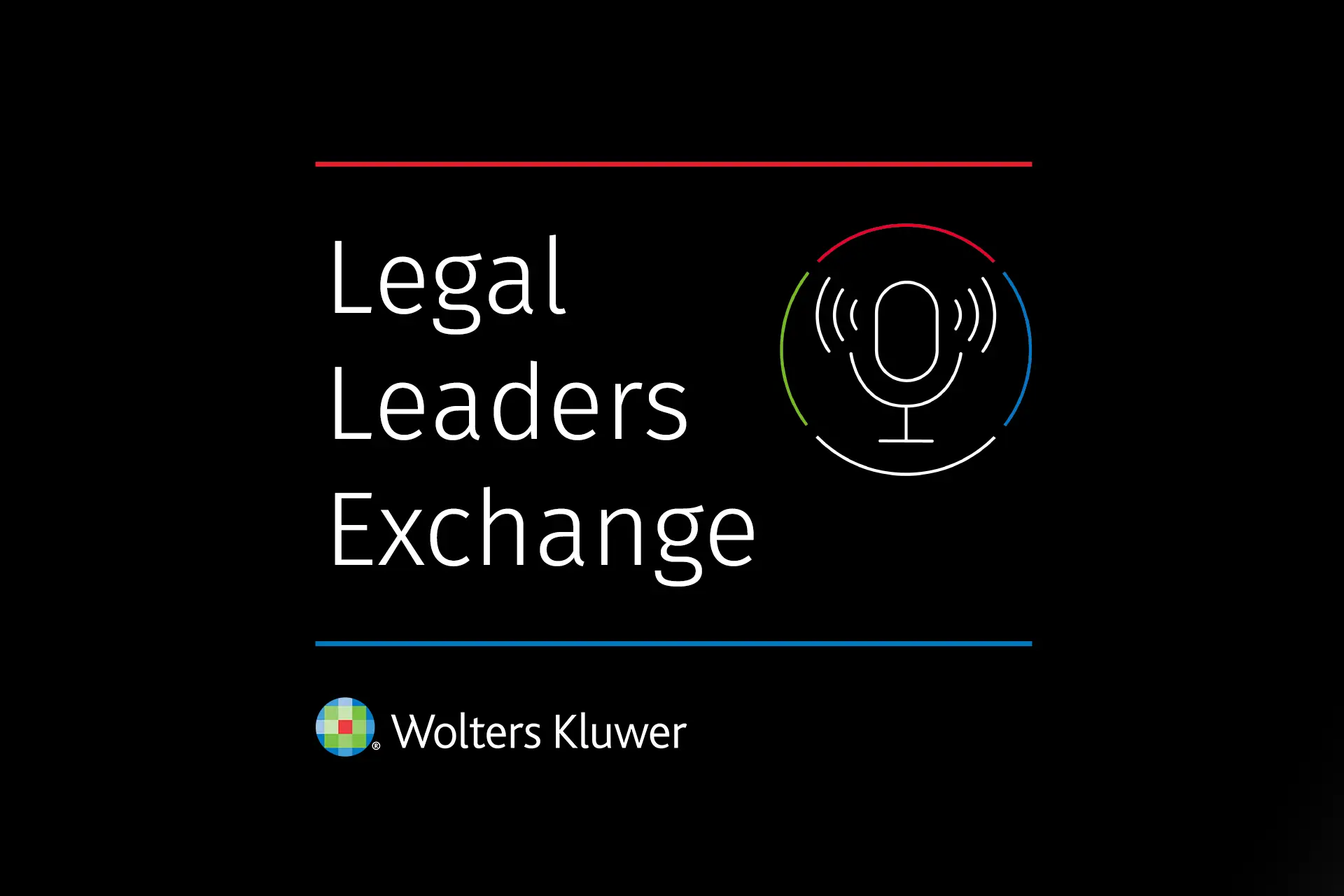The Caribbean region is comprised of many islands with diverse legal traditions as a result of being former (and present) colonies and territories of France, Spain, Britain, the Netherlands, and United States. The result is a melange of legal systems and jurisdictional challenges that need to be navigated by savvy intellectual property (IP) professionals. This article features one IP law firm based in the Caribbean, which provides insight into a region in the long-overdue process of overhauling its myriad IP regimes.
LegalDecember 19, 2019
Island Perspectives, IP in the Caribbean Region
Working in IP in the Caribbean region is very different – it’s got its unique challenges and rewards.
he protection of intellectual property (IP) rights can be a complex endeavor in even countries with the most sophisticated and updated IP regimes. This can be especially true of countries or regions where the IP regime may be lacking or slow or fractured – or all three. One such region is the Caribbean.
Comprised of a multitude of small and even tiny island countries and protectorates, many of them classified as developing economies, it shouldn’t be surprising that the Caribbean is challenging for any IP professional.
Sophie Peat is an IP professional taking on just that challenge. She works as a Senior Associate for HSM IP, a law firm based in the Cayman Islands, a small British Overseas Territory comprising three islands that is home to just over 64,000 inhabitants. HSM IP specializes in IP and its partner firm, HSM Chambers, specializes in commercial litigation, real estate, insolvency, immigration and employment law. A third entity, HSM Corporate Services, provides corporate services in the Cayman Islands.
According to the HSM website, Sophie’s focus is primarily on all aspects of IP protection, enforcement, and dispute resolution. She also manages a team of professional IP paralegals as a part of the firm’s highly-respected IP practice.
We conducted an interview with Sophie regarding her work as an IP specialist in the region and what she believes are its principal challenges and leading trends.
She loved the analytical aspect of law and IP in particular. That fascination with IP translated into her further studies in Law and, thereafter, her training in IP litigation at King & Wood Mallesons in London.
It was in 2015 that she got the exciting opportunity to join HSM IP in the Cayman Islands. Today, her portfolio includes IP portfolio management, advising clients on matters of trade mark, copyright, design and patent law, drafting and reviewing assignments, licenses, and handling all IP-related disputes.
Sophie was admitted as a solicitor to the Bar of England and Wales in 2010, and further admitted to the Cayman Islands Bar in 2015. She has been collaborating with Wolters Kluwer since joining HSM in 2015, solely as chief editor of the company’s contributions regarding IP issues and law in the region.
As a result, the HSM IP team is multinational and multi-linguistic. In turn, the firm’s specialist talent then works with a network of specialists and correspondent law firms throughout the region, which encompasses Latin American countries too. This includes Cuba, which, Sophie told us, had a surge of IP issues arise after so many years of relative isolation due to the US-imposed embargo.
These “idiosyncrasies” are many and include, for example, how registrars of IP in many island countries do not have any IP experience or background. In those instances, HSM works with them on a consultative basis, often by citing international case law, given the paucity of relevant precedent in the region.
Another challenge in searching or filing IP rights in the Caribbean is that many countries and territories don’t even have digitized records and filing systems. This can create additional lag in a region where a slower pace can be the norm.
Furthermore, IP law is also quite outdated in many Caribbean countries and many countries view IP as being too expensive to enforce.
The Cayman Island’s Trade Marks Act of 2016 came into force on August 1st, 2017. Sophie was of the opinion that the legislation was very welcome and was introduced by the Cayman Islands as a means of effectively “cutting out the UK as our middleman” when it came to the filing of IP rights in the islands, as well as the protection and enforcement thereof.
Before the new legislation, it was first necessary to acquire trade marks protection in the UK or EU before applying for the same in the Cayman Islands. Furthermore, if a rights holder lost their trade marks rights in the UK then they automatically did so in the Cayman Islands as well. With the 2016 legislation, that is no longer the case.
Sophie plays an active role in the development of IP jurisprudence in the Cayman Islands. She does this as part of her supportive liaison with the territory’s government regarding IP. She played a key consultative role when the Cayman Islands updated its copyright law in 2016, as well as when it updated its legislation for both trademarks and new designs in 2017.
Different IPCA committees meet to discuss various initiatives in the region. Sophie Chairs the Education and Training Committee, which organizes panel discussions at every meeting of IPCA on various “hot” topics in IP in order to provide IP education and training for members. IPCA also sponsors an annual essay competition on an IP topic open to law students, trainee lawyers / article clerks and first year lawyers across the region.
2019 has been an important year for IPCA regarding combating counterfeiting. In March 2019, the organization collaborated with INTA at a session held in Jamaica. It was a policy dialogue to promote anti-counterfeiting efforts between, specifically, Curaçao and Jamaica. The training of customs officials was also on the agenda. Sophie discussed how Jamaica has been quite active in combating counterfeiting in recent years. That country’s police seem quite savvy on how to enforce anti-counterfeiting drives and have conducted a number of raids.
Interestingly, that was not the case when the same question was posed to Sophie regarding the biggest challenge posed to IP in the Caribbean. When asked whether it could be AI/emerging technology, she simply answered, “No, not for now. And not for the foreseeable future”.
Although she did agree that it could be a major disrupter in the longer term, she simply didn’t see it as one for now. Her reason for believing that was simple: for now the region is “not as progressive as Europe and America” and, as such, is playing “constant catch-up” with the rest of the world. This too will be the case when the time eventually comes for the Caribbean’s IP field to be fully confronted by AI and technology.
After all, one needs to remember that, as stated previously in this article, some countries in the region don’t even have online databases for IP rights. Filing systems are often manual and very disorganized. That reality certainly puts practicing IP law in the Caribbean into perspective.
In her opinion, education, logistics, technology (in terms of filings and records), and enforcement will be the four biggest challenges facing the Caribbean’s IP field in the coming years.
The challenges are plenty. But, even with all those challenges, it has to be exciting to be an IP lawyer in the Caribbean region. And on most days it must surely beat having to put up with London traffic and weather!
Comprised of a multitude of small and even tiny island countries and protectorates, many of them classified as developing economies, it shouldn’t be surprising that the Caribbean is challenging for any IP professional.
Sophie Peat is an IP professional taking on just that challenge. She works as a Senior Associate for HSM IP, a law firm based in the Cayman Islands, a small British Overseas Territory comprising three islands that is home to just over 64,000 inhabitants. HSM IP specializes in IP and its partner firm, HSM Chambers, specializes in commercial litigation, real estate, insolvency, immigration and employment law. A third entity, HSM Corporate Services, provides corporate services in the Cayman Islands.
According to the HSM website, Sophie’s focus is primarily on all aspects of IP protection, enforcement, and dispute resolution. She also manages a team of professional IP paralegals as a part of the firm’s highly-respected IP practice.
We conducted an interview with Sophie regarding her work as an IP specialist in the region and what she believes are its principal challenges and leading trends.
A Little About Sophie
Sophie was educated at Cambridge University in Music. This may seem a rather idiosyncratic degree for someone who would eventually venture into IP, but it made perfect sense for Sophie: her degree was mostly theoretical and one of the aspects she found fascinating was that of copyright issues pertaining to music.She loved the analytical aspect of law and IP in particular. That fascination with IP translated into her further studies in Law and, thereafter, her training in IP litigation at King & Wood Mallesons in London.
It was in 2015 that she got the exciting opportunity to join HSM IP in the Cayman Islands. Today, her portfolio includes IP portfolio management, advising clients on matters of trade mark, copyright, design and patent law, drafting and reviewing assignments, licenses, and handling all IP-related disputes.
Sophie was admitted as a solicitor to the Bar of England and Wales in 2010, and further admitted to the Cayman Islands Bar in 2015. She has been collaborating with Wolters Kluwer since joining HSM in 2015, solely as chief editor of the company’s contributions regarding IP issues and law in the region.
The Caribbean – IP in Multiple Variations
In Sophie’s own words, working in IP in the Caribbean region is “very different – it’s got its unique challenges and rewards.” She went onto say how being in IP across the Caribbean means being immersed in a multi-jurisdictional context, given the region’s very different legal systems, both in the common law and civil law traditions. This is due to the diverse colonial histories of the many different Caribbean countries and territories that were once ruled (or still are) by Britain, France, Spain, the Netherlands, or the United States.As a result, the HSM IP team is multinational and multi-linguistic. In turn, the firm’s specialist talent then works with a network of specialists and correspondent law firms throughout the region, which encompasses Latin American countries too. This includes Cuba, which, Sophie told us, had a surge of IP issues arise after so many years of relative isolation due to the US-imposed embargo.
IP Challenges in the Caribbean
Sophie refers to the “the inherent idiosyncrasies of IP,” which can be quite challenging for clients wishing to register their IP rights in the Caribbean.These “idiosyncrasies” are many and include, for example, how registrars of IP in many island countries do not have any IP experience or background. In those instances, HSM works with them on a consultative basis, often by citing international case law, given the paucity of relevant precedent in the region.
Another challenge in searching or filing IP rights in the Caribbean is that many countries and territories don’t even have digitized records and filing systems. This can create additional lag in a region where a slower pace can be the norm.
Furthermore, IP law is also quite outdated in many Caribbean countries and many countries view IP as being too expensive to enforce.
Recent IP Trends in the Cayman Islands
The Cayman Island’s Trade Marks Act of 2016 came into force on August 1st, 2017. Sophie was of the opinion that the legislation was very welcome and was introduced by the Cayman Islands as a means of effectively “cutting out the UK as our middleman” when it came to the filing of IP rights in the islands, as well as the protection and enforcement thereof.Before the new legislation, it was first necessary to acquire trade marks protection in the UK or EU before applying for the same in the Cayman Islands. Furthermore, if a rights holder lost their trade marks rights in the UK then they automatically did so in the Cayman Islands as well. With the 2016 legislation, that is no longer the case.
Sophie plays an active role in the development of IP jurisprudence in the Cayman Islands. She does this as part of her supportive liaison with the territory’s government regarding IP. She played a key consultative role when the Cayman Islands updated its copyright law in 2016, as well as when it updated its legislation for both trademarks and new designs in 2017.
The Role of IPCA
In a region striving to improve and update its IP standards, an organization such as the Intellectual Property Caribbean Association (IPCA) is vitally important. IPCA offers a united forum for IP specialists and others to meet and discuss IP issues, which include the need for IP reform in the Caribbean.Different IPCA committees meet to discuss various initiatives in the region. Sophie Chairs the Education and Training Committee, which organizes panel discussions at every meeting of IPCA on various “hot” topics in IP in order to provide IP education and training for members. IPCA also sponsors an annual essay competition on an IP topic open to law students, trainee lawyers / article clerks and first year lawyers across the region.
Counterfeiting in the Caribbean
Counterfeiting is a problem on many Caribbean islands and many of the world’s leading brands have been trying to combat that scourge. Counterfeiting flourishes in a region where there is mass tourism, much of it from the world’s largest large cruise ships. The raising of awareness regarding counterfeiting is much-needed, not to mention the legislating and enforcement thereof. Too often the latter is particularly lacking in Caribbean countries.2019 has been an important year for IPCA regarding combating counterfeiting. In March 2019, the organization collaborated with INTA at a session held in Jamaica. It was a policy dialogue to promote anti-counterfeiting efforts between, specifically, Curaçao and Jamaica. The training of customs officials was also on the agenda. Sophie discussed how Jamaica has been quite active in combating counterfeiting in recent years. That country’s police seem quite savvy on how to enforce anti-counterfeiting drives and have conducted a number of raids.
Technology – Not A Beast… Yet
The answer has been the same from every other lawyer and IP specialist we have interviewed when asked what they believed was today the leading challenge or ‘disrupter’ in their field: AI / emerging technology.Interestingly, that was not the case when the same question was posed to Sophie regarding the biggest challenge posed to IP in the Caribbean. When asked whether it could be AI/emerging technology, she simply answered, “No, not for now. And not for the foreseeable future”.
Although she did agree that it could be a major disrupter in the longer term, she simply didn’t see it as one for now. Her reason for believing that was simple: for now the region is “not as progressive as Europe and America” and, as such, is playing “constant catch-up” with the rest of the world. This too will be the case when the time eventually comes for the Caribbean’s IP field to be fully confronted by AI and technology.
After all, one needs to remember that, as stated previously in this article, some countries in the region don’t even have online databases for IP rights. Filing systems are often manual and very disorganized. That reality certainly puts practicing IP law in the Caribbean into perspective.
Challenges and Conclusions
According to Sophie, the biggest challenge facing IP in the region in the next 5-10 years will be ensuring updated legislation in all countries. Another major challenge is that of enforcement, as well as the need for more professional IP offices, including more knowledgeable IP officers and enforcement officials.In her opinion, education, logistics, technology (in terms of filings and records), and enforcement will be the four biggest challenges facing the Caribbean’s IP field in the coming years.
The challenges are plenty. But, even with all those challenges, it has to be exciting to be an IP lawyer in the Caribbean region. And on most days it must surely beat having to put up with London traffic and weather!
expert insights
Podcast: International Law Talk
During a series of podcasts we will bring you insightful analysis, commentary and discussion from thought leaders and experts on current topics in the field of International Arbitration, IP Law, International Tax Law, Competition Law and other international legal fields.
During a series of podcasts we will bring you insightful analysis, commentary and discussion from thought leaders and experts on current topics in the field of International Arbitration, IP Law, International Tax Law, Competition Law and other international legal fields.
Kluwer IP Law
The master resource for Intellectual Property rights and registration.





